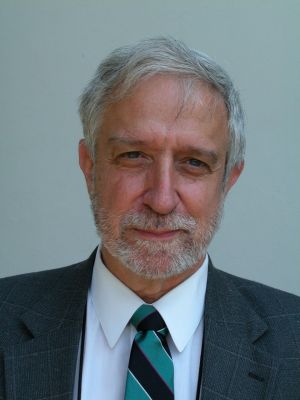|
| Biography |
| |
 Michael Oborne has been at the Organization for Economic Co-operation and Development (OECD) since 1980. He has held posts as Senior Research Fellow (China and Pacific Basin), Executive Assistant to the Deputy Secretary General of OECD, Head of the Science and Technology Policy Division of OECD, and Deputy Director for Science, Technology and Industry. He is presently Director of the OECD's International Futures Programme and the OECD’s Global Science Forum.
Michael Oborne has been at the Organization for Economic Co-operation and Development (OECD) since 1980. He has held posts as Senior Research Fellow (China and Pacific Basin), Executive Assistant to the Deputy Secretary General of OECD, Head of the Science and Technology Policy Division of OECD, and Deputy Director for Science, Technology and Industry. He is presently Director of the OECD's International Futures Programme and the OECD’s Global Science Forum.
Mr. Oborne was educated at the University of California at Berkeley (BA, MA, and PhD), Cambridge University, and the Ecole Normale Supérieure in Paris. He has taught at universities in the United States, Great Britain, France and Italy. In the 1980's he worked on the political economies of the Pacific Basin countries, and published books and articles on technology and direct foreign investment issues in the People's Republic of China.
Over his career, Mr. Oborne has worked extensively in the areas of biotechnology, science policy, innovation policy frameworks, information technology policy and the political economy of China. Currently, the IFP is working on projects focused on the commercialization of space, the new security economy, monitoring and managing new systemic risks and the emerging bio-economy. Mr. Oborne chairs the OECD Internal Coordinating Group on Biotechnology. He organized and chaired the 2004 Frascati meeting on the promotion of responsible oversight in the biosciences, and is currently developing further work on biosecurity.
|
| |
|
|
| |
| Abstract |
| |
|
"Reinventing the Clinical Innovation Enterprise" |
|
|
|
The links between innovation, productivity, health and wealth are recognised by OECD countries. Investing in and encouraging innovation is a priority for many jurisdictions as is the affordability, quality and sustainability of health-care systems. The apparent tension between these two goals can be mitigated, however. The challenge for policymakers is to encourage innovation that addresses health needs and priorities; maximises access to the benefits; and manages risks in a way that is beneficial both to innovators and health systems.
The presentation will consider some of the key challenges facing policy makers and innovators as well as the opportuntiies provided by developments in genomics and informatics in particular to reorganise and reinvent the way that clinical innovaiton is delivered.
An attempt will be made to draw the strings together for a short-medium term agenda for international policy action that might reduce regulatory uncertainty and encourage the creation of a more stable receiving environment for life science innovation, particularly in the health sector. |
|
| |
|